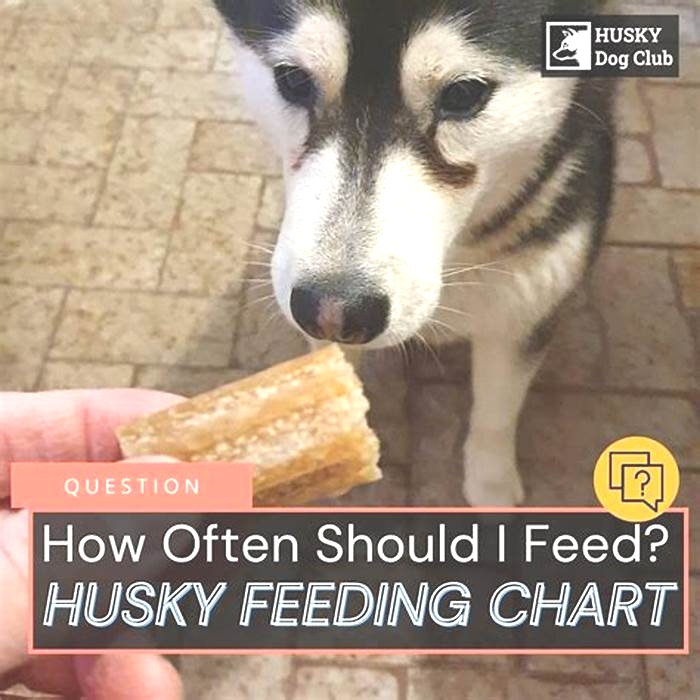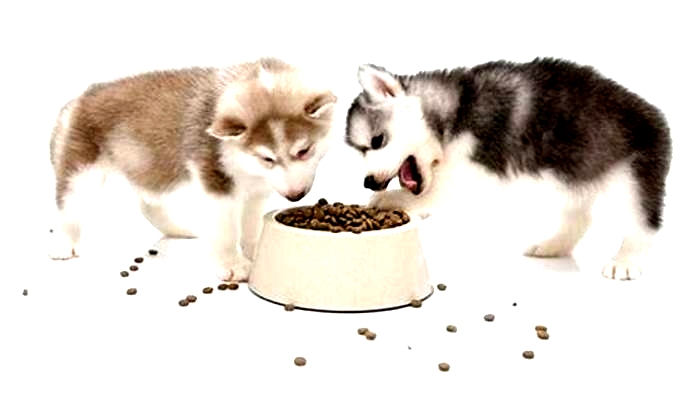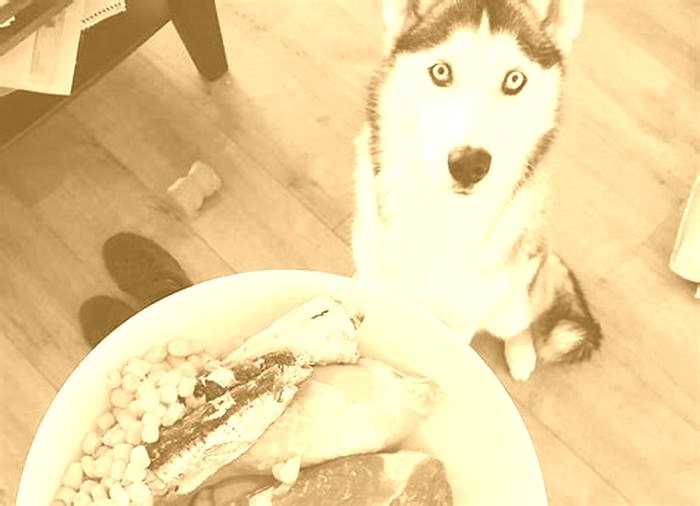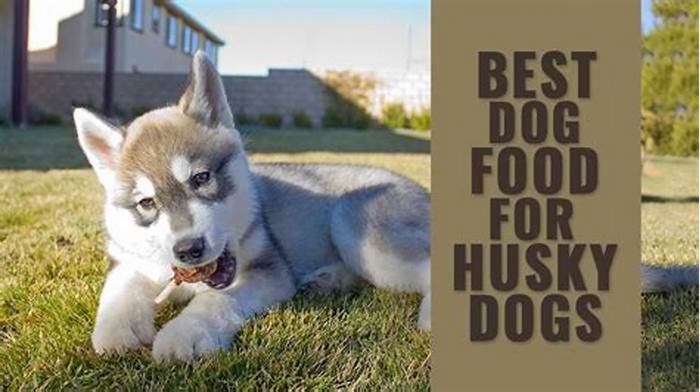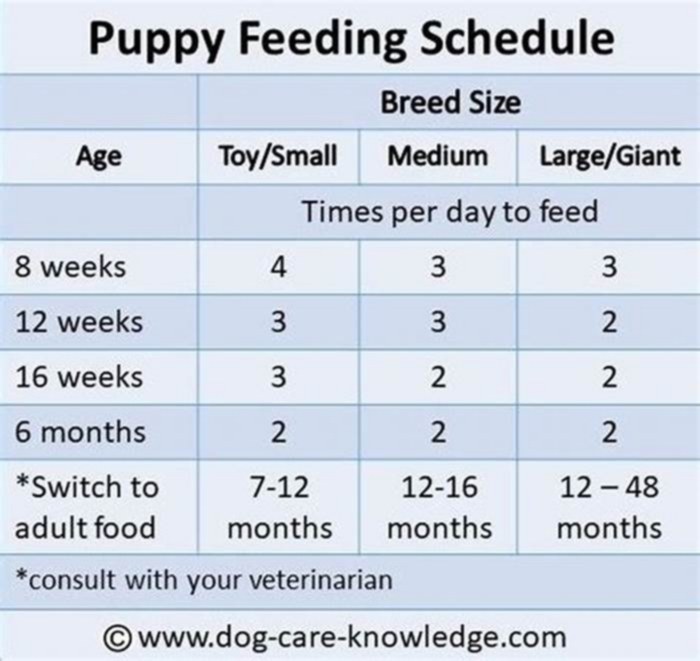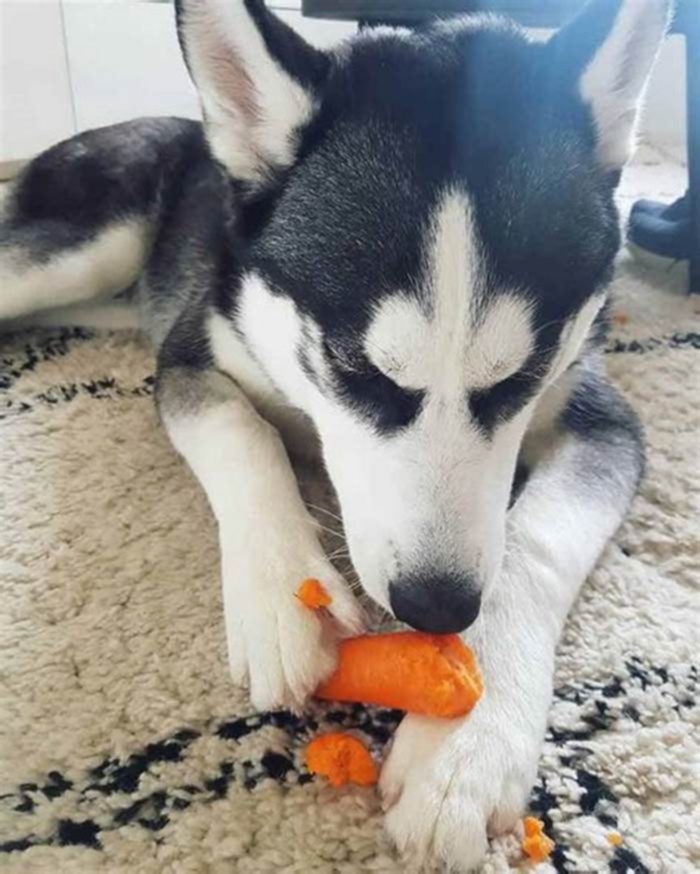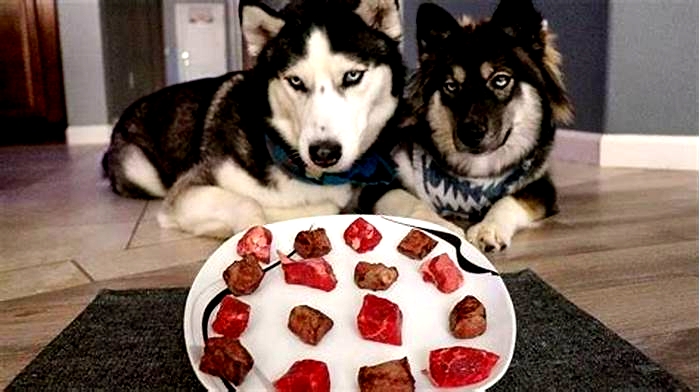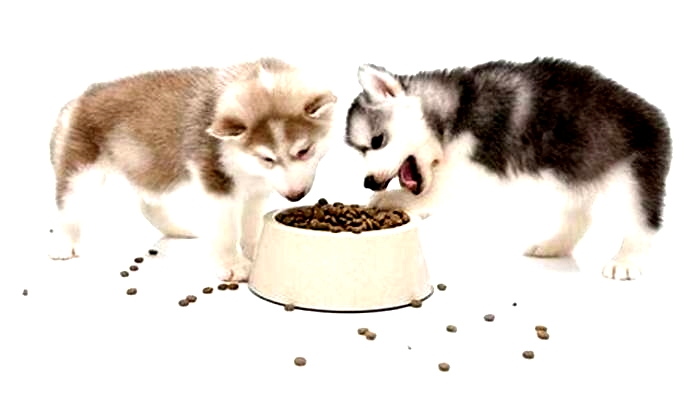How much to feed a husky a day
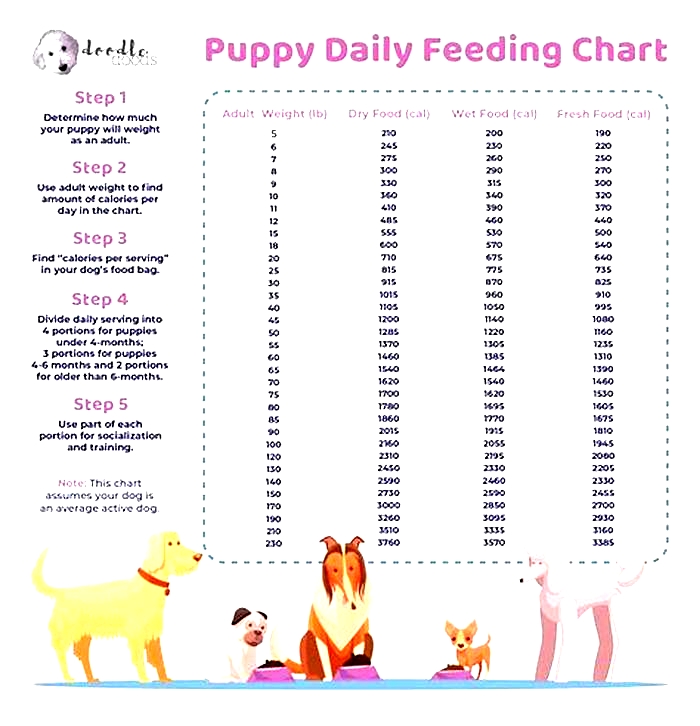
Husky Feeding Chart The Definitive Guide to Feeding Your Puppy
Husky diet plan How many calories should a husky eat?
The main particularity about huskies feeding is their capacity for eating only the necessary. This means that even when they have access to the food they only eat until they are satisfied.
The amount of food will change depending on different characteristics like gender, energy levels, size, and age of your dog. If you opt for a commercial diet, it is not necessary to worry about calorie calculations. However, always try to opt for premium quality food that ensures the optimal development of your dog.
Besides, you can also decide to feed your Husky with a raw or homemade diet. To do so, its necessary to determine your pups resting energy requirement (RER) and multiply that by two to get an idea of the number of daily calories.
Manufactured dog food, comes with a growth chart that tells you the recommended amount of food depending on your dogs size.
Note: To avoid overfeeding, you can give them 20% less than the package amount and start from there to test the ideal portion for your husky.
Husky puppy feeding guide
Husky puppies eat more than an adult because of the energy needed in their bodies and the number of calories they require.
During the first year of your husky, the number of times you will feed him will change. We have fed several puppy huskies as follows:
- 2-3 month husky puppy: 3 meals a day.
- 4-month husky puppy: 3 meals a day.
- 6-month husky puppy: 3 meals a day.
- 8-month husky puppy: 2 meals a day.
- 10-month husky puppy: 2 meals a day.
- 12-month husky puppy: 2 meals a day.
Husky adult food How many calories do they eat?
The average adult huskies require no less than 1,100 calories per day on a daily basis.
Other huskies with more energy than the average require at least 1,800 calories a day.
Female/Pregnant Husky Food

If you have a female husky and its pregnant or lactating you must know that they will need an increase of food.
Its recommended to increase their meals from two to three or four meals per day during the final stages of pregnancy.
After that, you can gradually go back to common portions until they start the weaning process.
A homemade diet requires a special control of calories and nutrients for being healthy for your dog. You need to know that this kind of food is more expensive than commercial food. You also need to add some essentials like omega-3 fatty acids and other good fats to cover all your dogs needs.
The most important thing about this is that no matter what kind of diet you choose for your dog, remember to be very tight with the feeding schedule. Keep it balanced with exercise sessions for avoiding alimentary disorders.
How Much to Feed a Husky (Puppy & Adult Feeding Chart)
237
Feeding Siberian Huskies might be challenging for some dog owners, as their nutritional needs change as they grow older. So, as a responsible fur parent, you should know how much to feed your Husky throughout its life.
The amount of food a Husky needs mainly depends on its age and weight. A Husky puppy typically needs to consume anywhere between and 3 cups of food daily, whereas an adult should be given 2 to 3 cups. For senior Huskies, providing between 1 and 2 cups of food per day is recommended.
This article will tell you more about Husky feeding. By the end, you will have an idea of how much to feed a puppy, adult, and senior Husky.
What Factors Impact How Much to Feed a Husky?

Like other dog breeds, a Siberian Husky requires a specific diet to maintain health and energy levels. The amount of food you should feed them depends on various factors.
Below are factors that can influence Husky feeding:
- Age: A Siberian Husky puppy requires a different diet than adult Huskies. Puppies need more protein and fat to support their growth and development. As they mature, their nutritional requirements change, so youll need to adjust their feeding accordingly.
- Weight: The weight of your Siberian Husky is a crucial factor in determining how much to feed it. Overweight Huskies require fewer calories, while underweight dogs may need more. Weigh your Husky regularly to monitor their weight and adjust its feeding as necessary.
- Activity level: Huskies are a high-energy breed requiring much exercise. The more active your Husky is, the more calories it will burn and the more food it will need to eat. If your Husky is less active, you should adjust its feeding to avoid overfeeding and gaining weight.
- Health: If your Husky has health issues like diabetes or allergies, you may need to adjust its diet. Ask for veterinary advice, as they can recommend a specific dog diet plan to meet your Huskys needs.
- Type of food: Huskies require a high-quality, protein-rich diet to maintain their muscle mass and energy levels. If you choose low-quality dog food filled with fillers, you may need to feed your dog more to attain its required protein intake. High-quality dog food may be able to provide the needed nutrients in fewer servings.
Having dealt with different types of Huskies myself, I would like to highlight that there are certain types of Huskies that may require special diet types.
An example of this is the mini Husky. Unlike regular Huskies, these small variants of the breed maintain a small size throughout their lifespan.
Hence, it is best to consult with veterinarians and pet nutritionists when it comes to the proper feeding of these specialized Husky types.
It is crucial to take note of these factors when it comes to Husky feeding. By considering their age, weight, activity level, health, and food type, you can ensure your Siberian Husky gets the proper nutrition they need to thrive.
How Much to Feed Your Husky?

Among the several factors that influence the feeding requirements of your Siberian Husky, age significantly impacts the amount of food you need to feed it.
Thus, giving it age-appropriate food is crucial, especially after your dog has been transitioned to you completely from its breeder.
This section will guide you to determine and plan your dogs diet accurately.
Husky Puppy Feeding Chart (2 to 12 months)
Your Husky puppy can transition from their mothers milk to Husky puppy food at around two months of age. Doing this gives your puppys digestive system enough time to adjust to dog food.
Feeding your Husky puppy a balanced diet consisting of 80% dry and 20% wet food is recommended for optimal nutrition. Ensure that the puppy food contains high levels of animal-based protein and healthy ingredients.
The following guide can be used to determine how much should your Husky puppy eat:
| Age | Daily Feeding Amount (Cups) | Caloric Intake (Per day) |
| 2 3 months | 3 | 388 1,488 |
| 4 7 months | 1 3 | 732 1,344 |
| 8 12 months | 2 3 | 942 1,667 |
Your Husky puppy will experience rapid growth during the early stages of their life. By the time they reach one year, their growth will begin to slow down.
Feeding large breed puppies, such as Siberian Huskies, requires a case-by-case approach. So, the chart is intended to provide a rough estimate and should be used as a general guideline.
Adult Husky Feeding Chart (1 to 6 years)
The following chart can help you determine the appropriate amount of food to feed an adult Siberian Husky:
| Age | Daily Feeding Amount (Cups) | Caloric Intake (Per day) |
| 1 6 years | 2 3 | 761 1,334 |
A balanced diet for adult Siberian Huskies should include fruits, vegetables, and whole meat. Owners can either buy commercial dog food or prepare homemade meals.
In addition, choose adult dog foods that contain omega-3 fatty acids, chicken fat, and flaxseed to support your dogs healthy development.
Senior Husky Feeding Chart (7 years and above)
Senior Huskies are less active than puppies and adult dogs, so monitor their food intake closely to prevent overfeeding or underfeeding.
They also have a slower metabolism and may have difficulty digesting dog food. Hence, avoid foods high in fats to prevent weight gain and obesity.
The table below will help you determine the appropriate amount of dog food to feed your senior Husky:
| Age | Daily Feeding Amount (Cups) | Caloric Intake (Per day) |
| 7 years and above | 1 2 | 609 1,067 |
Senior Huskies risk becoming overweight if their diet is not carefully monitored and adjusted.
Vets typically suggest a 20% calorie decrease for senior Huskies, especially those with degenerative issues such as hip dysplasia. This can help prevent them from becoming overweight.
How Often Should You Feed Your Husky?

Generally, a Husky puppy must be fed three to four times a day. You should automatically switch to two meals daily as your pet enters adulthood. When they reach senior years, it is recommended to feed them once or twice a day.
Check out the table below for the proper feeding frequency for your Husky:
| Age | Feeding Frequency |
| 2 12 months | Three to four times a day |
| 1 6 years | Two to three times a day |
| 7 years and above | Once or twice a day |
Siberian Huskies are not overeaters like other dog breeds. They eat only when hungry and dont overindulge, even with food around. They will only consume more if they are working out.
But even though Siberian Huskies dont eat a lot, its still recommended to establish a good feeding schedule.
How to Transition Your Husky to a New Food

Transitioning your Husky to a new food is inevitable. This is because your pet requires different nutrients to support its changing lifestyle and growing body as it enters new stages of life.
Ideally, the switch should take place over a period of 5 to 7 days. During this transition, you should gradually blend in the new food by mixing it with your dogs original diet.
As per the American Kennel Club (AKC), a dietary transition for dogs will look like the table below:
| Day | Old Food | New Food |
| Day 1 2 | 75% | 25% |
| Day 3 4 | 50% | 50% |
| Day 5 6 | 25% | 75% |
| Day 7 | 0% | 100% |
Abruptly changing your dogs food can lead to gastrointestinal problems like vomiting, diarrhea, and loss of appetite.
If you opt to switch your dogs food, do it gradually. This will give their digestive health enough time to adapt to the new diet.
Tips on Feeding an Overweight Husky
Feeding an overweight Husky can be challenging, but the right approach can help it achieve a healthy weight.
Here are some tips on feeding an overweight Husky:
- Feed them high-quality dog foods. Feeding your Husky high-quality dog foods that are low in calories and high in protein can help them feel full while still meeting their nutritional needs. These might cost a bit more, but are more economical in the long run, considering the health impact on your Husky. Also, look for commercial dog foods specifically designed for weight loss.
- Measure your Huskys food. Rather than free-feeding your Husky, measure its food and feed it at specific times throughout the day. This will help you track how much it eats and ensure it consumes only what it needs.
- Give them low-calorie treats. If you like to give your Husky treats, choose low-calorie options such as carrots or green beans. Avoid giving them high-calorie treats like cheese or processed meat.
- Monitor your Huskys progress. Regularly monitor your Huskys weight and adjust its food intake and exercise routine. Gradually make changes to avoid causing stress or discomfort for your Husky.
- Increase exercise. Increasing your Huskys exercise can help it burn calories and achieve a healthy weight. Aim for at least 30 minutes of exercise daily, such as brisk walks or playtime in the backyard.
Its important to approach weight loss healthily and sustainably. Rapid weight loss can harm your Huskys health, so be patient and consistent in your efforts to help them achieve a healthy weight.
To motivate you further, I would like to share a story about the Husky of a friend of mine who became too large because of too much consumption of treats.
The dog was not sickly but I advised my friend to make sure that Alaska, her husky, engages in more physical activity before he grows bigger.
Since Alaska is socially trained and does not have any issues with obedience, he got his daily dose of play in the neighborhood park. This daily and disciplined routine put Alaska back to his healthy weight in no less than three weeks time.
Frequently Asked Questions

How Do I Know If Im Feeding My Husky Enough?
There are specific ways to check whether you are feeding your Husky enough. First, if your Husky constantly begs for dog food or seems overly hungry, it could be a sign that they are not getting enough to eat.
Another sign is the stool condition. If their stool is consistently loose or hard, it could be a sign that they need more of the right amount of food.
Still, the best way to know if youre feeding your Husky enough is to consult your veterinarian.
Why Is My Husky Not Eating?
Huskies are not picky eaters, but they have somewhat sensitive stomachs. Despite their sizeable physiques, they do not consume as much food as other dogs.
Establish a regular feeding schedule for your Husky. A decreased appetite could be due to an incomplete diet, poor food quality, or preference.
But if these factors are not responsible for your Huskys loss of appetite, an underlying health problem could be the cause. Seek advice from your trusted veterinarian in such situations.
Can I Feed My Husky With Human Food?
While sharing your food with your Siberian Husky may be tempting, feeding them human food comes with several risks. Certain human foods can harm dogs, and even small amounts can cause health problems.
Dogs digestive systems differ from humans. Some foods that are safe for us can be harmful for them. This includes alcohol, chocolate, caffeine, and xylitol-containing products, which are particularly dangerous for dogs.
To ensure their safety, keep any harmful foods or substances out of their reach. If uncertain about a particular human food, consult a veterinarian before giving it to your dog.
Do Huskies Eat a Lot?
Huskies do not tend to eat a lot. Surprisingly, they do not overindulge in food despite their large physiques. Nonetheless, you should note that the amount a Husky must eat will be influenced by several factors.
Can Huskies Eat Bones?
Giving bones to Siberian Huskies is not advisable, as they can pose a choking risk and digestive problems. Bones can also break into sharp fragments, causing internal injuries in the digestive system.
Although raw bones are less prone to splintering, they can result in digestive issues or blockages if not chewed properly. Cooked bones are more likely to break into sharp fragments, making them more dangerous.
For safe chewing options for your Husky, choose chew toys and treats made for dogs.
Hopefully, you have learned valuable tips from this feeding guide. Share with us your experiences in Husky feeding in the comment section!

